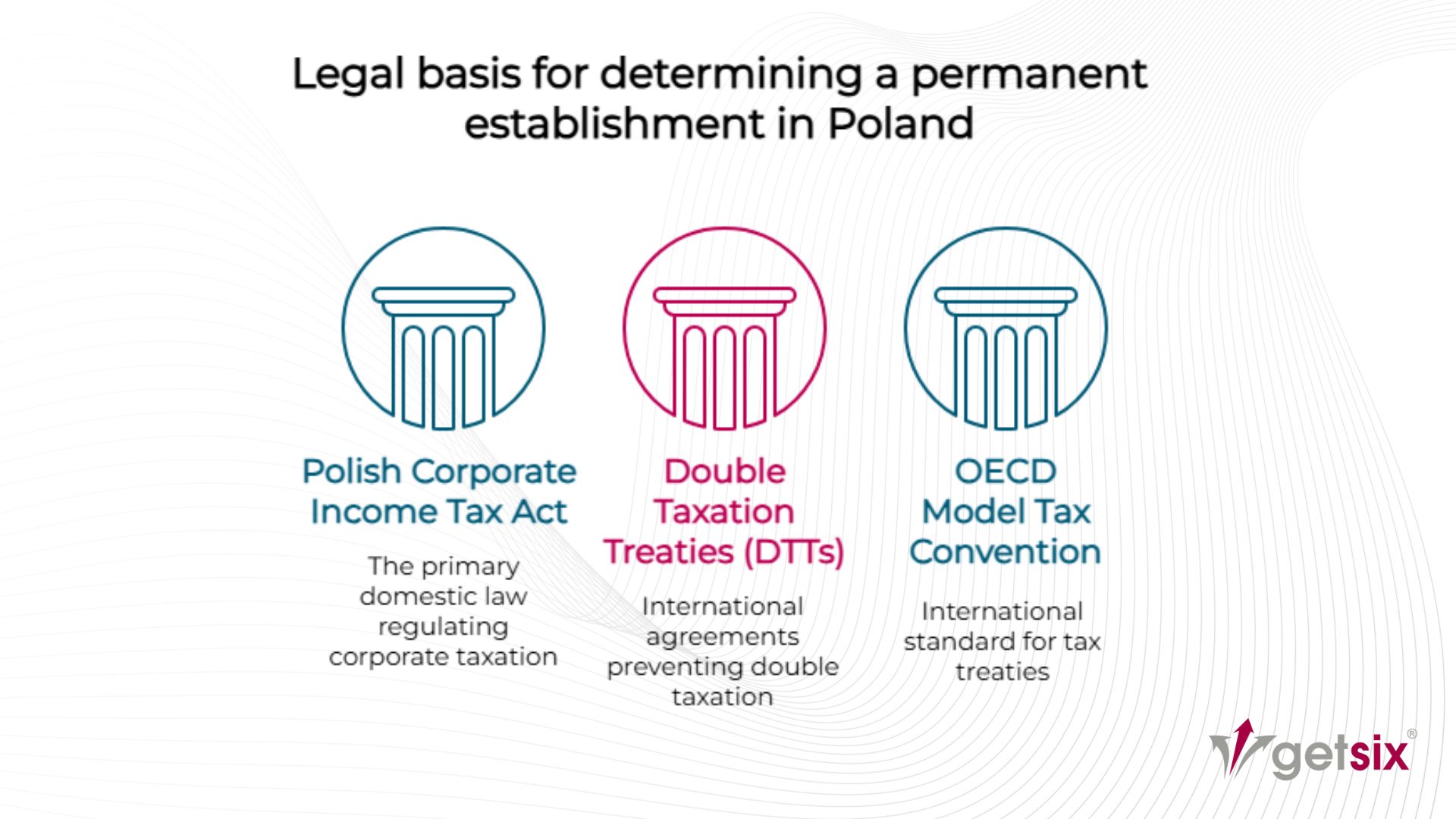Hiring remote employees from Poland by foreign companies – when does a permanent establishment arise?
29 July 2025
29 July 2025

Hiring employees based in Poland to work remotely is a common practice among foreign companies, especially in sectors such as IT, finance or consulting. However, this form of cooperation may lead to significant tax implications in Poland – including the risk of triggering a permanent establishment. In practice, this means potential obligations related to corporate income tax (CIT) in Poland.
A permanent establishment (PE) refers to a situation where a foreign company carries out business in Poland in a sufficiently continuous and organised manner, so that part of its activities is deemed to be performed from within Polish territory. In practice, this means that even hiring an employee who performs their duties from Poland – without having a physical office or a registered branch – may give rise to a PE.
It is important to underline that there is no formal application process in Poland to create a permanent establishment. Its existence is assessed solely based on the actual circumstances – i.e. how and where the business activity is effectively carried out. If it is determined that the activity conducted from Poland meets certain conditions, the foreign company may be obliged to declare and pay corporate income tax (CIT) in Poland on the portion of its profits attributable to operations carried out within the country.
The assessment of whether a permanent establishment exists is based on three main legal sources:

All these legal instruments assume that a PE exists where there is a fixed place of business through which a foreign enterprise carries out, at least in part, its business activities in Poland. This does not need to be a formally registered entity – it is sufficient that the activity is conducted in a continuous, organised manner and can be linked to a specific location.
With the growing popularity of remote work, a common question arises: can performing professional duties from one’s place of residence (home office) – particularly when located in a country different from the employer’s registered office – result in the creation of a permanent establishment? The answer is not straightforward, as it depends on the specific circumstances.
Remote work performed from Polish territory does not automatically mean that a foreign company has a permanent establishment in Poland.
However, if such work:
it may be regarded as business activity conducted from within Poland in a way that satisfies the conditions for constituting a permanent establishment.
To assess whether business activity conducted in Poland may lead to the creation of a permanent establishment, it is useful to consider the following factors:
Even in the absence of a formal structure in Poland, it is still possible that the foreign enterprise is deemed to be conducting business in a permanent and organised manner within Polish territory – which may, in turn, trigger an obligation to pay corporate income tax (CIT) in Poland.
Although the concept of a permanent establishment is defined in both domestic law and international tax treaties, its application in practice often raises interpretational challenges. In many cases, it is not possible to clearly determine whether a permanent establishment has arisen – especially in the context of modern work models such as remote employment. The tax obligations of a foreign employer in Poland are frequently unclear and depend on a number of variables.
As a result, the Polish National Tax Information Service (Krajowa Informacja Skarbowa, KIS) often interprets the facts to the disadvantage of foreign businesses, adopting a broad interpretation of the state’s fiscal interest. Even if the activities carried out in Poland are limited in scope and involve no physical infrastructure, they may still be deemed sufficient to create a permanent establishment.
In an individual tax ruling dated 6 May 2025 (ref. 0114-KDIP2-1.4010.86.2025.2.MW), the Director of KIS held that a German company employing a remote worker in Poland on a permanent basis – with no office or physical presence in the country – had a permanent establishment in Poland. According to the authority, the employee’s residence constituted a fixed place of business, even though the employee did not represent the company towards clients nor conclude contracts.
This interpretation, however, contradicts the ruling of the Supreme Administrative Court of Poland (Naczelny Sąd Administracyjny, NSA) of 19 February 2025 (ref. II FSK 609/22), in which the court clearly stated that remote work alone – without the employer having any right to use the premises or organisational presence in Poland – does not constitute a permanent establishment.
The differences between the KIS’s interpretative practice and the approach of the administrative courts demonstrate that each situation must be assessed individually. Foreign companies employing staff in Poland should carefully evaluate whether the nature and organisation of such cooperation could give rise to tax consequences. In cases of doubt, it is advisable to consult with tax experts or apply for an individual tax ruling, which may confirm (or exclude) the existence of a permanent establishment in the specific factual context. If the ruling is unfavourable, it can be challenged before an administrative court.
Hiring employees in Poland by foreign companies – especially in the absence of physical presence – involves a range of obligations and legal and tax risks. Key aspects include properly structuring the employment relationship, ensuring compliance with Polish labour and social security law, and assessing the potential risk of creating a permanent establishment.
The getsix® team offers comprehensive support in this area – from advisory services to day-to-day operations. Our services include:
Thanks to our experience working with companies from various countries, getsix® effectively combines local expertise with the expectations of international clients. Our approach is based on a thorough understanding of each client’s business model and the delivery of solutions tailored to their specific situation.
Hiring employees in Poland through a foreign company may give rise to tax and social security obligations. The getsix® team supports companies in assessing these risks and ensuring full compliance with Polish payroll, HR, and tax regulations. Contact us using the contact form.
Hiring workers from Poland – even in a fully remote model – may lead to the creation of a permanent establishment (PE) in Poland. This classification carries specific tax consequences, including the obligation to register and pay corporate income tax (CIT) in Poland. Although the general definitions of a PE are well known and stem from the CIT Act and double taxation treaties, their practical application remains subject to interpretation and uncertainty.
The assessment of whether a PE arises depends not only on formal factors (e.g. place of work, employee’s authority, type of contract), but also on operational realities – such as how work is organised, the level of managerial oversight, or access to company resources. Therefore, it is essential to analyse both HR aspects and potential tax or organisational consequences in advance. From a foreign employer’s perspective, ensuring compliance with Polish regulations while minimising exposure to risk is key. Specialist tax advice and individual tax rulings can prove invaluable tools for mitigating disputes with Polish tax authorities. In practice, many businesses rely on the support of experienced local partners who assist in analysing the circumstances, preparing the necessary documentation, and handling formalities before relevant Polish institutions.
If you have any further questions or require additional information, please contact your business relationship person or use the enquiry form on the HLB Poland website.
***
Download the brochures providing general information and outlining the services that are offered by HLB member firms.
Learn moreClick below for more detailed information regarding population, major towns and cities, language, religion and holidays in Poland.
Learn more